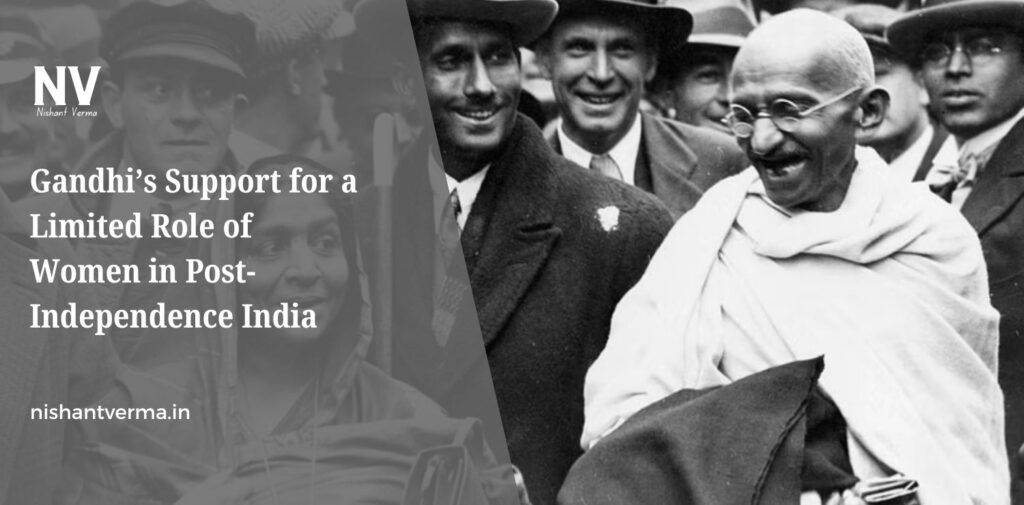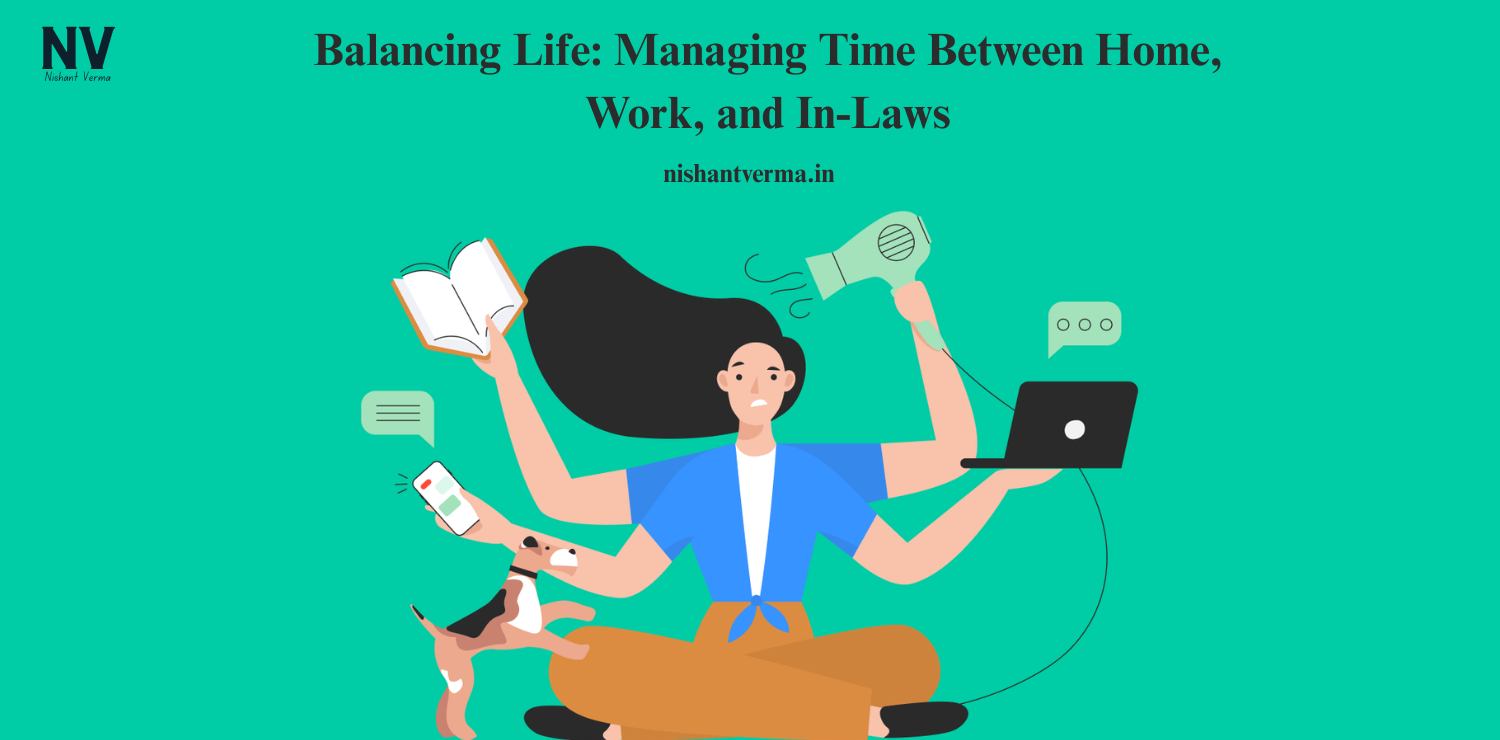Mahatma Gandhi, one of the most influential leaders in the Indian independence movement, is often remembered for his advocacy of non-violence, truth, and equality. While he fought for the rights of many marginalized groups in society, including the Dalits (or “untouchables”), his views on women were more complex and sometimes contradictory. Gandhi believed that women had an important role to play in society, but his vision of that role was often limited by traditional values and conservative thinking.
While Gandhi championed women’s participation in the independence movement, his support for their role of Women in post-independence India was not as expansive as it could have been. He believed women should be respected and given opportunities, but he also thought their primary responsibility should remain within the home, focusing on family and household duties. This article explores Gandhi’s ideas on women, his support for their limited role in post-independence India, and the lasting impact of his beliefs on women’s rights and roles in modern India.
Gandhi’s Views on Women in Society
Mahatma Gandhi’s relationship with the idea of women’s roles in society was shaped by his personal experiences, religious beliefs, and the social structure of his time. Gandhi was raised in a traditional Hindu household where women were generally expected to perform domestic roles. However, Gandhi was influenced by his mother, who was a strong and pious woman. This early influence made him sensitive to the issues faced by women and to the idea that women, like men, deserved respect and dignity.
Despite his respect for women, Gandhi’s views on their roles in society remained conservative in many ways. He often said that women should be the guardians of moral values in society, but he did not advocate for women to take up leadership roles in the public or political spheres. Instead, he envisioned women as the spiritual and moral leaders of the home, shaping the values of future generations.
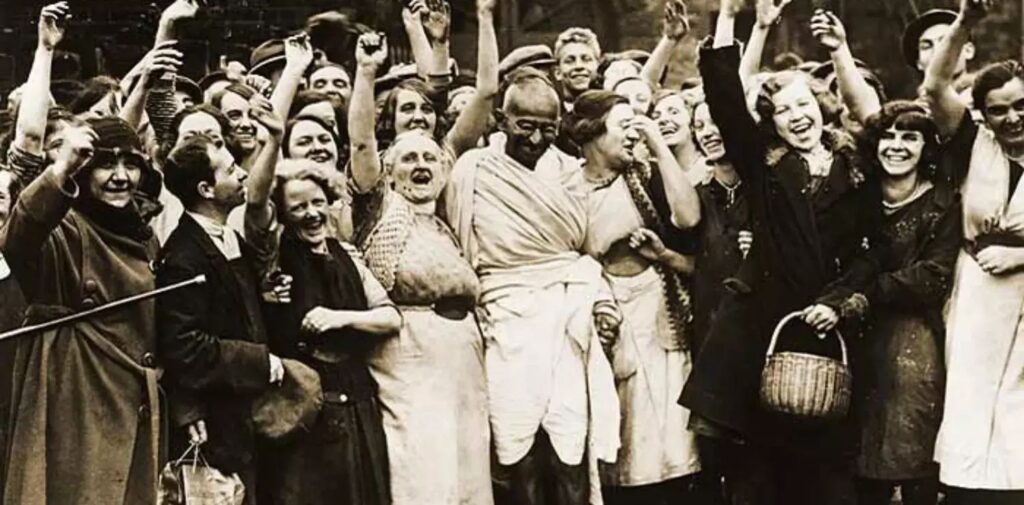
Women’s Role in the Independence Movement
One of the most significant aspects of Gandhi’s approach to women’s roles was their involvement in the Indian independence movement. Gandhi encouraged women to take part in the fight for freedom. He saw the participation of women as essential to India’s struggle for independence. Women like Sarojini Naidu, Kasturba Gandhi (his wife), and many others played key roles in the independence movement, organizing protests, campaigns, and other activities that brought attention to the need for independence.
Gandhi believed that women’s natural nurturing and moral qualities could be harnessed to help in the struggle against British colonial rule. He saw their participation as an expression of strength and sacrifice. Women like Kamaladevi Chattopadhyay, who worked on the promotion of handlooms and crafts, and the women who participated in the Salt March, were seen by Gandhi as active agents in the freedom movement.
However, while Gandhi supported women’s participation in the independence movement, he still believed that their role should ultimately be tied to their responsibilities at home. He often referred to women as the “mothers of the nation,” and this maternal image, while empowering in some ways, also limited their potential for involvement in public life. Women were encouraged to take part in the freedom struggle, but their place in the post-independence political or economic spheres was not clear.
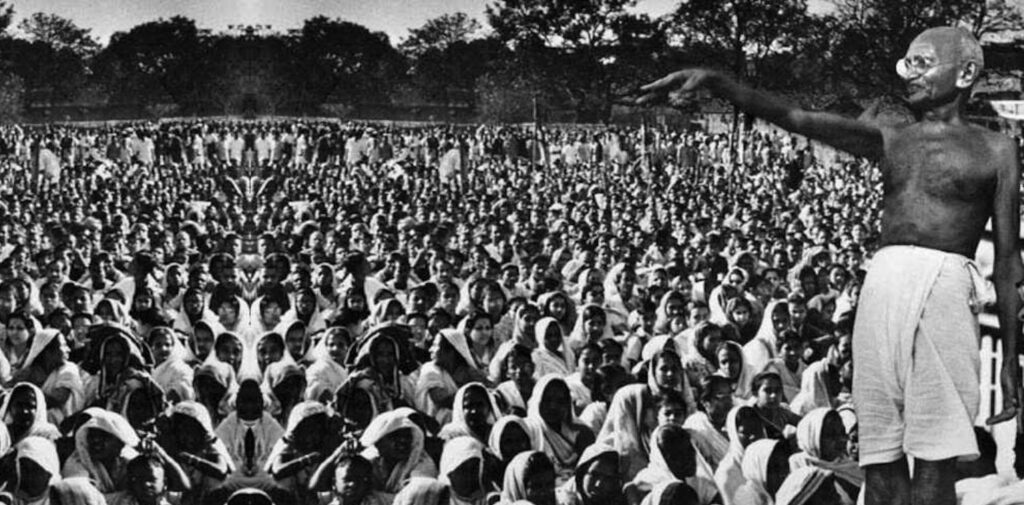
Gandhi’s Vision for Post-Independence India
After India gained independence in 1947, Gandhi envisioned a society that was based on simple living, self-reliance, and moral values. He wanted India to return to its rural roots and to promote a life that was in harmony with nature. His vision for women in post-independence India was largely shaped by these ideals. Gandhi felt that women should maintain their traditional roles as caretakers of the home, preserving the values of family and community life. He believed that the home should be a place of moral and spiritual training, and that women, as the heart of the family, had the greatest responsibility in shaping a moral society.
At the same time, Gandhi also recognized the importance of women’s education and empowerment. He encouraged women to become more self-reliant by learning skills that would help them contribute to their families and communities. He supported women’s participation in movements for social reform, such as those aimed at ending untouchability and promoting the education of girls. He also supported women in the workplace, though he often saw their primary role as being within the household.
While Gandhi acknowledged the importance of women’s contributions to the social and political spheres, his views remained limited when it came to women taking on leadership roles in the government or other areas of public life. He believed that women’s duties as mothers, wives, and caretakers were of higher importance than their participation in the world of politics and business.
Gandhi’s Views on Women Rights and Equality
While Gandhi believed in women’s dignity and their right to be respected, he did not believe in full equality for women in the same way that many modern feminists do. Gandhi did not push for women to have the same political or economic rights as men. For example, although he was supportive of women’s right to vote, he did not believe that women should take up active roles in government, seeing politics as a domain for men.
Gandhi’s approach to women rights was influenced by his belief in non-violence (ahimsa) and his emphasis on moral and spiritual purity. He felt that women’s primary role was to guide men toward righteousness and moral values. Therefore, he did not see women’s involvement in public life or leadership as necessary for their fulfillment. He believed that a woman’s strength was best expressed through her influence within the home, and her role as a wife and mother was seen as a key part of building a morally strong society.
In his view, women should be treated with respect, but not in the same way men were. Gandhi’s vision was not about complete gender equality, but rather about finding a balance where women could have a meaningful role in society while remaining within traditional gender roles. He thought that if women fulfilled their duties at home and maintained high moral standards, society would be better off. This view often clashed with modern ideas of feminism, which argue for full equality between men and women in all aspects of life.
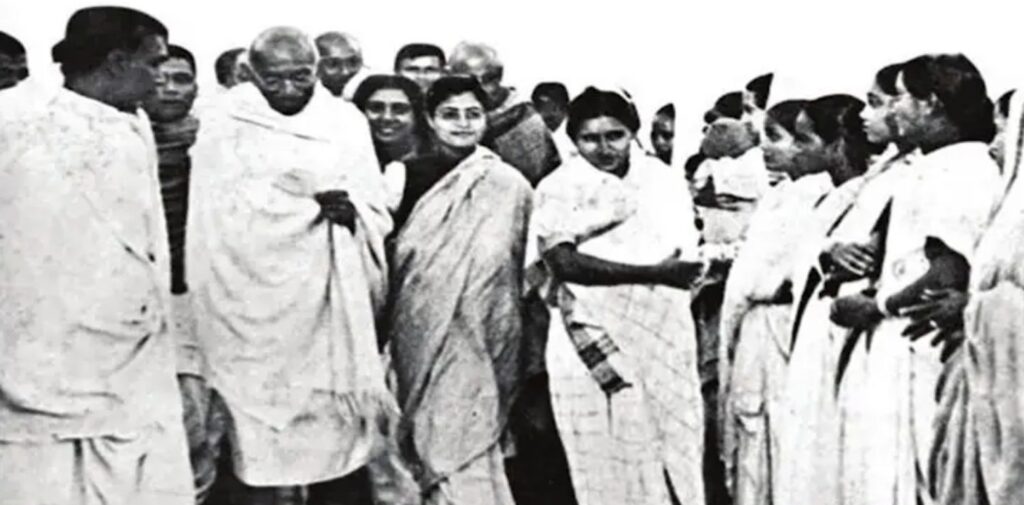
Gandhi’s Legacy on Women’s Empowerment
While Gandhi’s views on women were limited by the social norms of his time, his support for women’s involvement in the independence movement and his recognition of their moral strength laid the groundwork for future discussions on women rights in India. After independence, many women in India, inspired by the freedom struggle, began to demand greater opportunities in education, employment, and politics.
Over time, India made significant progress in advancing women’s rights. The Indian constitution, adopted in 1950, granted women equal rights in areas such as education, employment, and marriage. Women like Indira Gandhi, who became India’s first female Prime Minister, were able to take on leadership roles in public life, something that Gandhi had not fully supported. Today, women in India are found in all sectors, from politics and business to sports and education. The feminist movement in India continues to challenge the traditional roles that Gandhi envisioned for women, calling for full equality in all aspects of life.
Nevertheless, Gandhi’s ideas about women, though limited, continue to influence discussions on gender and society in India. His respect for women as moral and spiritual guides, and his encouragement for their participation in public life during the independence movement, remain an important part of India’s history.
Conclusion: Role of Women in Post-Independence India
Mahatma Gandhi’s support for a limited role of women in post-independence India was shaped by his complex views on gender, tradition, and social values. While he believed in women’s dignity and supported their participation in the independence movement, his vision of their role in post-independence India was largely confined to the home and family life. Gandhi saw women’s primary responsibility as caretakers of moral values, which limited their involvement in public and political spheres.
Though his ideas on women’s roles were influenced by traditional values, his advocacy for women’s rights and their participation in the struggle for independence was groundbreaking for his time. Gandhi’s legacy on women’s empowerment is mixed, as it opened the door for further discussions on women’s rights while also reinforcing traditional gender roles. Today, India’s women continue to push for equality in all areas of life, building on the foundations laid by leaders like Gandhi, even if his vision of their role was far from complete.

